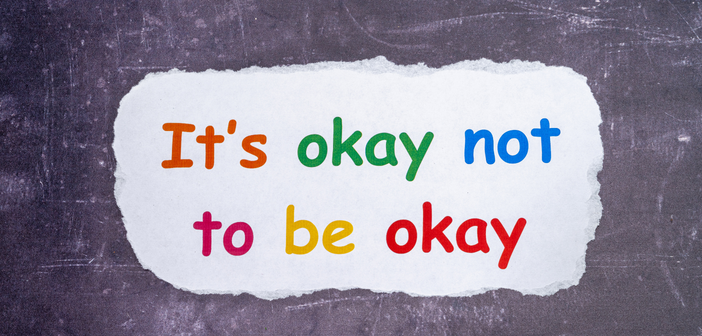By Mary Ann Sibley
I never met anyone afraid of a tiny packet of ketchup until one Saturday evening a few years ago.
In addition to our Sunday services, our church has two Saturday services. We offer dinners during the Saturday meetings where anyone can buy a meal. If you’re a single parent, you and your kiddos can eat for free. One evening, a mom and her two young kids showed up with Happy Meals in tow. It was their first time at our church, and she didn’t know that we offered free meals.
The mom waved over to a volunteer and asked for some ketchup. She explained that they were in a hurry to get to church, so she went through the drive-thru but forgot the ketchup for the french fries. She also told him that they’d been wanting to attend church but couldn’t make it on Sundays, so when she discovered our Saturday services, she was so excited. It was the perfect opportunity for this volunteer to help her feel welcome.
“Unwilling to let the young mother’s needs go unmet, I marched into the kitchen, grabbed a handful of ketchup packets, and handed them to the volunteer. “Here, take them to her and ask if there’s anything else at all she needs or wants,” I said.
The volunteer made his way back to the kitchen to ask for some ketchup, but the cook (who ran a pretty tight ship) told him no. He came to me to report what happened and said, “I didn’t want to upset the cook, so now I don’t know what to do!” Unwilling to let the young mother’s needs go unmet, I marched into the kitchen, grabbed a handful of ketchup packets, and handed them to the volunteer. “Here, take them to her and ask if there’s anything else at all she needs or wants,” I said.
After finishing his ketchup drop-off, he came back to me grinning. “What did you learn?” I asked. He stared at me with renewed determination. “Get the ketchup,” he replied.
This was a turning point for him, our team, and myself. So much so that now we present a “Get The Ketchup” award to one of our volunteers each year. We all learned that when in doubt, our response should always seek to answer the question, “What is the most loving thing to do?”
As a volunteer, it’s often easy to fall into a rut with your serving routine. You walk in, find your badge, stand where you’re supposed to stand or go where you’re supposed to go, and put your time in while trying to look relatively pleasant.
But this is certainly not what Jesus demonstrated to us when he took the time to kneel with children (Matthew 19:14), sit and talk to a woman at the well (John 4:1-42), or recline at the dinner table with “tax collectors and sinners” (Matthew 9:9-13). He didn’t have to stop and make an effort to show love to others. He could’ve chosen the path of least resistance, but he didn’t. And neither should we.
We all learned that when in doubt, our response should always seek to answer the question, “What is the most loving thing to do?”
We should fight the urge to go into autopilot mode when our serving roles feel mundane or when it seems like nothing big or important is happening. And as leaders, we need to recognize that when volunteers become complacent, fearful of making a mistake, or simply don’t believe they are allowed to make choices, they miss opportunities to:
- Display radical hospitality
- Experience Kingdom wins for themselves
- Know that they’re making a difference
But when volunteers experience firsthand how their actions, words, and body language can impact others for God, there’s no stopping them. It’s like once a team gets a taste for winning, they want to win more. Or once I take a bite of my favorite meal, I crave more of it.
To gain that winning mentality and momentum, we need to challenge our volunteers (and ourselves) to get outside of the box in serving. We should fight complacency so that we don’t miss the wars being fought in the lives of the people around us. Satan wants us to be distracted from what others are experiencing. Instead, we need to be watchful for opportunities to be faithful in reaching out to others.
2 Chronicles 16:9 says, “For the eyes of the LORD roam throughout the earth, so that He may strongly support those whose heart is completely His.”
Sure, the reference here is that there was a war at hand, so reliance on God needed to be steadfast. But even today, we’re called to be faithful—whether we’re seeking protection, guidance, and comfort through trials or we’re experiencing a relatively “normal” phase of life where things can seem monotonous.
Circling back to my ketchup story, here are 5 important lessons I learned that day:
1 – Ministry happens between people, not through things and events. Volunteers are the lifeblood of a successful ministry. Without them, you sacrifice the relational piece of the puzzle that Jesus modeled so well for us.
2 – Volunteers need to know they’re significant. We can set a perfect stage for ministry, but it won’t mean much unless the people involved know their worth.
3 – Ministry is often found in the mundane. Even if the task seems unimportant, an opportunity to lighten someone’s load may be the faithfulness God is looking for from us.
4 – Serve through love first. When in doubt, teach volunteers to ask themselves, “What is the most loving thing to do in this situation?”
5 – Show grace. When volunteers mess up or overreach or miss the assignment, pour out grace and then, for good measure, pour out some more grace.
Oh, and don’t forget to get the ketchup!
Do you have a need for volunteer coaching and training? If so then reach out to Mary Ann by going to her website at matterspark.com. You can also reach Mary Ann by emailing her at: maryann@95Network.org.
Be sure to stop by our 95Network.org/online store to find helpful resources designed to encourage and strengthen your ministry leadership.







